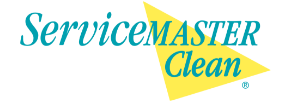10 Healthcare Cleaning Best Practices for Your Carol Stream Facility
According to the CDC, healthcare-associated infections affect nearly 1.7 million hospital patients annually. Healthcare facilities need to take the necessary steps to ensure that their spaces are properly clean. After all, a clean space means healthier patients, happier staff, and even a better reputation in your community.
ServiceMaster Commercial Cleaning Services Carol Stream understands the importance of keeping hospitals, urgent cares, doctors' offices, and more free of germs and debris – which is why we're here with a list of 10 essential best practices for healthcare cleaning. Check out these tips below to learn more:
1. Establish a Cleaning Plan
Having a routine for healthcare cleaning is of utmost importance. Develop a comprehensive checklist and protocol to guide your cleaning staff effectively. This ensures cleaning tasks are carried out consistently, maintaining hygiene standards.
To ensure your cleaning regimen is foolproof, consider these steps:
- Identify high-traffic areas needing frequent cleaning.
- Create a digital or paper-based checklist.
- Assign tasks to specific staff and track completion.
2. Use EPA-Approved Disinfectants
Using EPA-approved disinfectants is crucial in healthcare. These scientifically proven products effectively eliminate harmful microbes, reducing infection transmission risks. Adhere to usage instructions for efficient disinfection.
For effective germ management in your healthcare setting, make sure to:
3. Practice Regular Hand Hygiene
Hand hygiene is crucial to reduce disease spread. Regular handwashing or sanitizing by staff, patients, and visitors significantly prevents pathogen transmission. Though cleaning services maintain facility hygiene, personal hygiene is everyone's responsibility.
To keep hands clean and minimize disease spread:
- Install hand sanitizing stations at key locations.
- Create instructional signage for handwashing.
- Train and monitor staff for compliance.
4. Ensure Proper Waste Management
Proper waste management is critical in a healthcare setting. Different types of waste – including general, clinical, and hazardous- require distinct disposal methods. Proper collection, transportation, and disposal of waste help maintain the healthcare facility's cleanliness and safety and contribute to environmental sustainability.
For a cleaner and safer healthcare environment:
- Label waste bins for different types of waste.
- Train staff on waste segregation.
- Schedule regular waste collection.
5. Complete High Touch Surface Sanitization
High-frequency touch surfaces, such as door handles, light switches, and countertops, are potential hotspots for germs and bacteria. Regular and rigorous sanitization of these surfaces can effectively curb the spread of infectious diseases and ensure a safer environment for patients and healthcare staff.
To limit the spread of germs on frequently touched surfaces:
- Identify all high-touch surfaces.
- Implement a frequent sanitization schedule.
- Train staff on proper sanitization techniques.
6. Complete Regular Equipment Sterilization
The regular sterilization of medical equipment is a non-negotiable practice in healthcare facilities. Any lapse in this process can lead to cross-contamination and severe infection risks. Sterilization techniques should adhere to the guidelines set by health authorities to ensure their effectiveness and safety.
For a contamination-free healthcare setting:
- Create a sterilization schedule for reusable equipment.
- Train staff on sterilization protocols.
- Maintain sterilization records for auditing.
7. Monitor Air Filtration and Quality Control
Maintaining high-quality air within a healthcare environment is vital. Air filtration systems should be regularly inspected and filters replaced as necessary. Additionally, monitoring the air for contaminants is essential to maintaining a healthy and safe environment.
To breathe easier and safer:
- Schedule regular inspections of air filtration systems.
- Replace air filters as needed.
- Install and monitor air quality sensors.
8. Perform Staff Training and Infection Control
Staff training plays a crucial role in infection control. Regular training sessions must be held to ensure that all employees understand and adhere to the established hygiene and infection control protocols. Updated training on the latest best practices in healthcare cleaning is also integral to preventing healthcare-associated infections.
For a well-trained and informed staff:
- Schedule regular infection control training.
- Evaluate staff knowledge periodically.
- Update training materials as guidelines evolve.
9. Complete Regular Auditing and Inspection
Regular inspections and audits are instrumental in maintaining high standards of cleanliness in healthcare facilities. These allow for the early detection of any issues, enabling corrective actions to be taken promptly. An effective auditing system ensures adherence to healthcare cleaning best practices.
To make sure you’re staying on top of cleanliness:
- Create an auditing checklist aligned with cleaning plans.
- Assign auditing tasks to staff or third parties.
- Analyze audit results and implement corrections.
10. Invest in Patient Education on Hygiene Practices
Patients and their caregivers also have a role to play in maintaining a clean environment. Providing education on good hygiene practices, such as hand hygiene and cough etiquette, can help to prevent the spread of infections. Making educational materials readily available and accessible can empower patients and their families to contribute to a healthier environment.
To empower your patients to join the fight against infections:
- Create easily accessible educational materials.
- Place materials in waiting rooms and patient areas.
- Educate frontline staff to share hygiene tips with patients.
Let Our Professionals Handle Your Carol Stream Healthcare Cleaning
In the highly specialized world of healthcare cleaning, there's no room for error or oversight. That's why it's essential to entrust your Carol Stream facility's cleanliness to experts in the field. ServiceMaster Commercial Cleaning Services Carol Stream is here to comprehensively assess your healthcare environment, identify critical areas requiring specialized cleaning, and develop a tailored cleaning plan to meet those needs.
When you choose to collaborate with us, you gain the peace of mind that comes from knowing our dedicated team will adhere to everything on this list and the proven methods developed by ServiceMaster Clean and provided by the EPA and the CDC.
Ready to see what our long-standing track record of success is all about? Request a free quote today to get started on your custom commercial cleaning plan!

